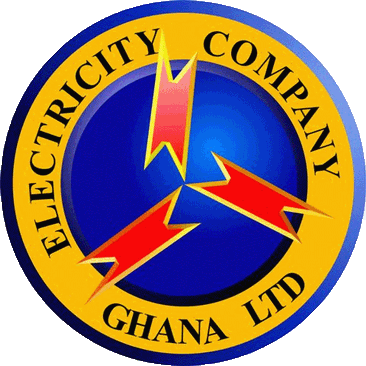ECG: Why we want over 160 per cent tariff increase
 As public outcry for better power supply and general service improvements mount, the Electricity Company of Ghana (ECG) continues to explain its demands for over 160 per cent increase in tariffs from Ghp 9.76 kilowatt per hour to Ghp 30.67 kilowatt per hour, or, as the company puts it, it may collapse under its mounting losses.
As public outcry for better power supply and general service improvements mount, the Electricity Company of Ghana (ECG) continues to explain its demands for over 160 per cent increase in tariffs from Ghp 9.76 kilowatt per hour to Ghp 30.67 kilowatt per hour, or, as the company puts it, it may collapse under its mounting losses.
The proposal for the upward adjustment, however, has not been welcomed by many stakeholders who think the calls for tariff increment over the years have not reflected the quality of service the utility provider is serving Ghanaians.
Speaking on Accra-based Radio Gold, the Public Relations Officer of the ECG, Mr William Boateng and Mr Ebenezer Baiden, a member of the ECG Tarrif Team, sought to justify the proposed tariff increment.
Exchange rate
According to them, the continuous depreciation of the cedi to the US dollar was having a toll on their operations.
They explained that as of December 2011 when a dollar was exchanged for GH¢1.50, the tariff rate was GHp9.76/kWh. However, the level of exchange rate adjustment in the Automatic Tariff Adjustment Formula (ATAF) did not compensate the company enough for payment to Independent Power Producers (IPPs) whose prices are dollar-denominated.
“When they gave us the distribution charges in December 2011, it was 9.76kw/h. At that time, the exchange rate was in the region of GH¢1.50, today it is GH¢1.9. Obviously it has affected the value of what you are charged.”
“Most inputs are dollar index. If for example, in 2010 the exchange rate was 1 is to 1.50 and today we are talking about 1 is to 2, we’ve seen about close to 30 per cent reduction in value so you will need more cedis to buy transformers and cables which are priced in dollars.”
Load-shedding
They explained that the load-shedding management programme was also affecting their cost of operations.
According to them, the company’s network assets are continually being weakened as a result of the frequent switching during the load-shedding management programme; hence the need to replace them at shorter time frames than expected.
“The switching on-and-off of our transformers, of our switch gears… so instead of taking 25 years to replace, we are talking about 5-10 years. So our assets are aging faster than they should.”
Operational cost
The two officials noted that the ECG has consistently made negative returns over the past three years.
They attributed the losses to the increased cost of energy they purchase from the Volta River Authority (VRA) and the other seven Independent Power Producers (IPPs).
According to them, the VRA is paid GHp 8.45/kW of energy supplied of which the end consumer buys at GHp22.77/kW.
“We have made negative returns for the past 3 years and today we are saying that with an asset base of GHC4 billion why should we be making losses? For example, we are paying GRIDCO GHp 2.48 and when you take VRA and the other IPPs; we are paying them GHp 10.53 for generation, and transmission takes GHp2.48 then the leftover of GHp9.76 is what comes to ECG. So we are supposed to transmit power and make profits out of the GHp9.76.”
“That is why we are saying that the GHp22.77 should be increased to 60.55 pesewas per kilowatt hour. And this is about 166 per cent.”
Inability to store
Unlike water where one can store and use later, the ECG officials explained that they are faced with a myriad of challenges especially when they have to shed load without any prior notice.
They explained that anytime there was a problem at the producer’s end, it directly affected their distribution.
“When one unit is off in Akosombo or Aboadze, directly the system should go off so we have a stable system.”
Performance benchmark
Notwithstanding the challenges facing the ECG, it says it is the best power distribution company in sub-Saharan Africa, second only to South Africa on the continent.
The officials explained that the company had set up several monitoring systems to retrieve losses that were being made as a result of staff delinquency.
They said as at December 2012, ECG’s line loss was 23 per cent as against a regulatory benchmark of 21 per cent which are set based on the socio-economic operating environment.
“In sub-Saharan Africa we are the best distribution company apart from South Africa. When you look at other countries like Ivory Coast, they are making huge losses. We don’t compare ourselves to dwarfs and that is why we are looking at the European side. PURC is even amazed at our performance,” they argued.
By Jasmine Arku/Graphic.com.gh
